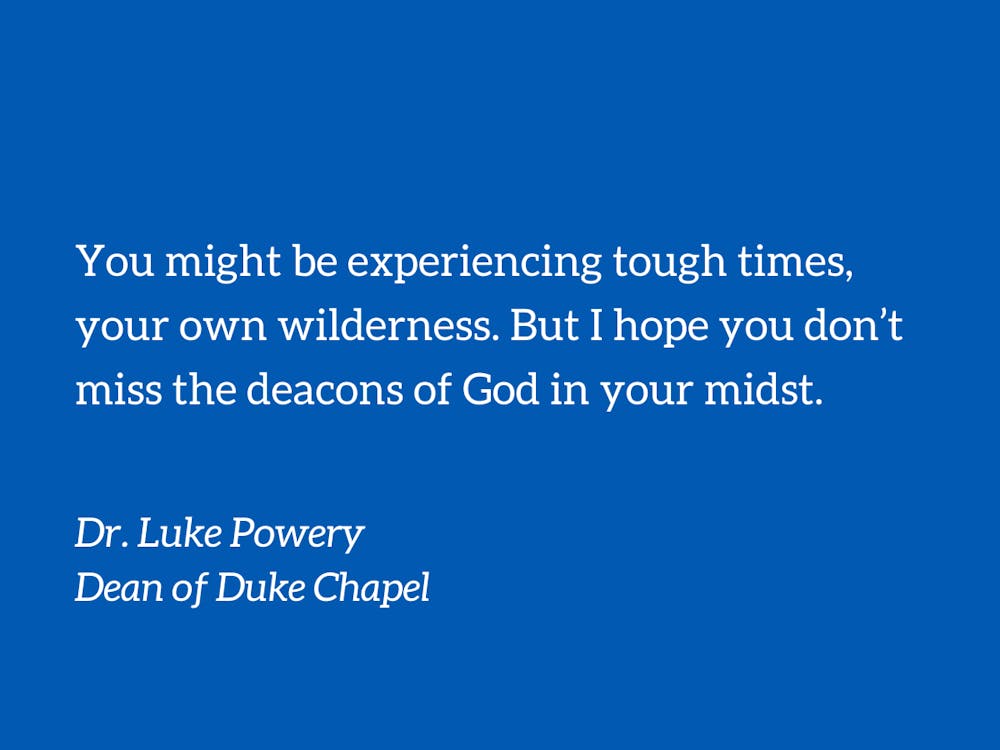In the spring of 2000, I was 26 years old and had graduated from seminary the previous year. I was engaged to be married and spent most of my engagement overseas in France; you can imagine that went over well with my fiancée and soon-to-be-wife, Gail. I was spending two weeks at the Taizé Community in France on a postgraduate fellowship.
And it was there where I wrestled with an unknown future. I had no job. Did not know what was next. I was going to get married, but I had no money and no house and — at the time — no car (somehow, I still thought I was a great catch!). Professional doors were closing, and I was stressed out about my next steps.
As I struggled with my unknown future, on my final day at Taizé — unbeknownst to me — the Taizé brother who was my spiritual director for a week of silence asked Brother Roger, the founder and leader of the community, whether I could be their honored guest at lunch. Br. Roger agreed, and there I was in my sweatpants and athletic T-shirt seated at the middle of a long rectangle table with at least 50 Taizé brothers.
Br. Roger had just returned from meeting with Pope John Paul II. He sat down in front of a small bouquet of flowers the brothers had given him. But Br. Roger told them to send the flowers down to me because I was their honored guest. I was a wandering, lost, anxious soul, not knowing what was next with doors being closed, but Br. Roger — a stranger — opened the door to me and welcomed me to the table. In my wilderness, he was an earthly angel.
I say that because of one little linguistic signpost standing upright in a literary wilderness: “… And suddenly angels came and waited on him” (Matthew 4:11). This little phrase is tucked into the Bible’s dramatic account of Jesus’ temptation by the devil in the desert. As a reader, you could easily miss this sign of grace, but that seemingly “throw-away” line could be your lifeline. The Greek verb”‘wait” in this passage comes from a word linked to the word “diaconate” from which we get the word “deacon.” Now, there are Demon Deacons at Wake Forest University, but these are angel deacons — mysterious beings guarding and serving in the wilderness.
We find a similar story in the life of the Rev. Howard Thurman, a spiritual mentor to many Civil Rights leaders. When he was only 14 years old, he left the comforts of home to pursue further education at a boarding school in Jacksonville, Florida since there was no high school for black children in Daytona Beach at that time. When he arrived at the train station to make his trip to Jacksonville, he was shocked to learn that while he had enough money for the fare, he needed more money to check his trunk.
Thurman thought his adventure was doomed to end on that platform until an “anonymous stranger” approached him and asked him why he was crying. This stranger gave him the money he needed to get to Jacksonville, changing the trajectory of Thurman’s life. After he gave him the money, he walked away, and Thurman never saw him again. Thurman never forgot that act of kindness. It made such an imprint on him that he dedicated his autobiography, With Head and Heart, not to a well-known theologian or businessman or celebrity or family member, but to this stranger on the platform who “restored his broken dreams.” This stranger was Thurman’s angel.
You might be experiencing tough times, your own wilderness. But I hope you don’t miss the deacons of God in your midst. Those little signposts of grace — “and suddenly angels came …” — can be so brief that you miss them amid the overwhelming abundance of temptations and human struggle. As the retired pastor Rev. Dr. J. Alfred Smith once preached: “Hope is a tiny sprout growing in cracked concrete.” Hope is so tiny, he is saying, that you can miss it. But I hope you have eyes to see the little sprout of grace, the flower blooming, the stranger as your angel.
The Rev. Dr. Luke A. Powery is Dean of Duke University Chapel. His column runs on alternate Mondays.
Get The Chronicle straight to your inbox
Sign up for our weekly newsletter. Cancel at any time.

